Victor Grossman
Crisis in Germany?
Berlin Bulletin No. 138
.

Victor Grossman
The impasse in forming a government in Germany has dragged on since election day, September 24th – often like a traffic gridlock, hardly moving forward. But Germany is Europe’s main central power – and with no proper government! Angela Merkel still acts as boss, the old ruling cabinet holds on as caretakers, but it’s all on borrowed time, with no legitimacy.
This old cabinet was called a “Grand Coalition”, with the biggest parties, former foes, joining to form it. Five ministers were from Merkel’s Christian Democratic Union (CDU) and two from its purely Bavarian sibling, the Christian Social Union (CSU). The two usually stick together to form the “Union” (the word has nothing to do with labor unions in German). Counting Chancellor Merkel that makes eight while the junior partner, the Social Democrats (SPD), hold five cabinet ministries. All three did miserably in the election, but since the Union remained the strongest, Merkel is the one to form a new government – if she can! But the SPD lost so miserably – down to 20.5 % – that Martin Schulz, its leader, declared bluntly: “Never again will we be junior partners in a Grand Coalition. We will again become an opposition party until we can rebuild our strength”.
But his SPD may well have to swallow those words, and his position may get swallowed up as well!
The problem is that a majority of delegates in the Bundestag is needed to pass laws or actions the government decides upon. With only two parties this would be easy; winner takes all! With one more, a smaller third party can choose which big one it favors and tip the seesaw in that direction. For years this tilting element was the Free Democratic Party (FDP), a strange “libertarian” party founded by both civil rights liberals and former Nazis, but now basically a secular big business party fighting against both environmental or workers’ rights restrictions and regulations.
In 1983 the Greens squeezed past the required 5% minimum to win seats in the Bundestag.
They were a pretty radical bunch then, reflecting a giant West German peace movement which led over a million people on one day (with many labor unions) in demonstrations against stationing missiles in Germany. Those first Green deputies resembled the American SDS, defied conservative traditions, wearing and even knitting wool sweaters during Bundestag sessions and in one case wearing sneakers to a swearing-in ceremony (and having more than 50 % female delegates).

German Bundestag, plenum
With four factors in the Bundestag, a balance was possible: one side was a so-called “center-right” with the twin “Christian Union” plus the FDP. Opposing them was what some called a “center-left”. The SPD kept its union ties but the leaders of both were mostly well-off and tame. As for the Greens, after German unification former dissident groups from the defunct German Democratic Republic joined them and pushed them rightward. They still stressed ecology and were good on gay rights, immigrants and equality for women. But on foreign policy they became the most belligerent of all, and they had almost no contacts with working class folk, who rarely voted for what became a party of well-off intellectuals. But it could help form governments; the Greens and the SPD alternated with the Union and FDP.
Then the LINKE party entered the picture (at first under an earlier name). Though at first no others wanted to have anything to do with them and they are still only partially accepted as ”decent democratic citizens”, their very presence, now with 69 seats (out of a total 709) made it harder to find over half the seats and form any coalition. In 2013 this made it necessary for the two biggest parties, the CDU and the SPD, to overcome old-time differences and form the coalition described above. Since both had moved closer politically this was not quite so difficult – for the leaders. But both lost big chunks of their voters, thus landing them in the current quagmire – with the SPD “No”.
To make matters worse in every way, the far-right, Nazi-tinged Alternative for Germany (AfD) soared to 12.6 % of the vote, getting them 94 deputy seats, some ripe to be adorned with swastikas.
No-one would coalesce with them either (as yet?), but their very number made it harder than ever – now with seven parties – to reach that 50% level. To make it, with the Social Democrats proudly resisting a renewed Grand Coalition, Merkel’s Siamese-twin Union parties (with only 246 seats) needed both the Free Democrats and the Greens, who hated each other. But she tried to lure the two onto the ship of state, so the four parties negotiated, bargained, argued, made compromises, rejected them, insulted each other and withdrew the insults, talked and talked for weeks and weeks. As Angela Merkel’s final deadline arrived it seemed they had at last swallowed their differences, with the Greens, the smallest, making the most compromises on its remaining principles. Then suddenly, at the last moment, the head of the Free Democrats called a press conference to say that his party was bowing out. No deal! All hopes for a “Jamaica government” – with party colors like those of the flag of far-off Jamaica, black, green and yellow – were now shattered.
Three possibilities remained. One was a minority government, hitherto unknown on the federal level, with the chances of passing any law or decision dependent on which non-government parties would agree to support it. Angela Merkel rejected this out of hand; she wanted no unstable force, open to pro or con pressures on her plans for Europe and beyond. And new elections? Nobody wanted them; they could end up much the same as the September vote or perhaps bring more gains for an opponent. Worst of all, they might well wind up with even bigger gains for the fascistic AfD, disgracing Germany’s image in all the world.
The third possibility is for the Social Democrats to swallow their pride and their brash words and slink back in again with the Merkel crowd as junior partners. Left-leaning Social Democrats, especially their Young Socialist wing, opposed such a compromise. But then Germany’s otherwise figure-head President Frank-Walter Steinmeier, himself an SPD man, urged his old fellow members to weaken up and come to the rescue of Germany. At the moment this seems the most likely outcome. And the president was happy to find, at last, some role other than just cutting ribbons, shaking hands and making speeches.
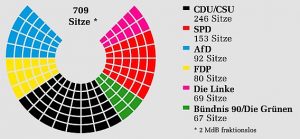
Distribution of seats in the 19th German Bundestag,
from October 2017
Yes, the SPD will probably eat crow “for the good of the nation”, with a return to the “same old same old” of the past four years. There will be quarrels. One courageous woman, the Minister of Environment, a Social Democrat, opposed further use of Monsanto’s herbicide Glyphosat in the European Union. But the Minister of Agriculture, from the Bavarian CSU, went to Brussels and defied her decision, breaking the rules to vote Yes on Glyphosat. Was that on his own or with Merkel’s OK? (And Monsanto pressure?) It’s not known, but it was a bad start by these care-taker ministers even before any new coalition had been agreed upon; no good omen for a possible new cabinet made up of the same parties and perhaps the same ministers. Will the Social Democrats voice valiant words about favoring progressive policies and then once more be satisfied with a few ripples while going along with the conservative tide of Merkel and the toughies behind her?
The LINKE party, with its 64 Bundestag deputies (a majority are women), was never asked and rarely mentioned in all this Ring-around-the-Rosie politics. Although some in the party do dream of someday being asked to join a coalition, this idea was never even vaguely broached by Merkel. And yet, the LINKE remains the only single political factor with principle and conscience. Yes, the Greens (and that one SPD cabinet minister) did hit at environmental issues, but other basic issues were hardly even mentioned. German soldiers are killing and dying in Afghanistan and Mali – and will soon march into Niger. Tanks and troops of the Bundeswehr are maneuvering dangerously near St. Petersburg on the Russian border. The Minister of Defense has set her sights on a super-modern European army with Germany leading the pack. No other party seems worried, all bow down to media anti-Russian attacks all too reminiscent of eighty years ago while the result of that policy then, the defusing of rusted old bombs, is still forcing people to leave their homes for hours, day or night.
Too many are forced to leave their homes more permanently. Görlitz on the Polish border, untouched by the war and called by many the prettiest town in Germany, was told last week that Siemens factories there and in Leipzig are planning to close and to cut jobs in Erfurt and Berlin. In out-of-the way Görlitz this is one of the last two job chances, and the Bombardier railway car factory, the other, is hinting at following suit. Thousands have already left the wilting town. While the LINKE has sadly been unable to reach enough working class people – its vote is about 15% – the AfD got 32.7%, making it the leading party in Görlitz as well as in all of Saxony. Although its program favors forces like Siemens, which is raking in more billions than ever, its clever propaganda, full of hatred, mostly against refugees and often helped by the media, is all too effective, although there are only 157 refugee families in Görlitz. Too many people, faced with such shut-downs, with low-paid, increasingly uncertain but overworked jobs, few chances for their offspring and worries about their retirement, are led to fear invented, non-existent threats like “Islam” instead of real threats from real foes. Merkel still boasts of how good things are going, but her pleasant smiles are increasingly unconvincing.
Unless ways are found to reach large numbers of the worried and dissatisfied, the menaces facing Germany – and perhaps world neighbors, near and far, will hardly be dispelled even if Social Democrats and the Christian Union parties now find their way to a renewed coalition.



















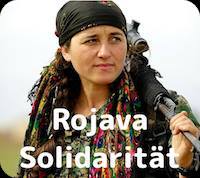


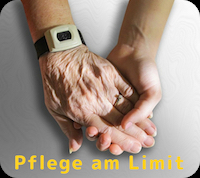




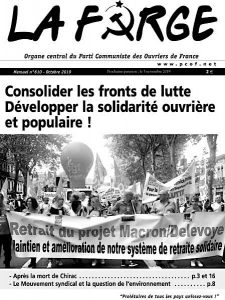





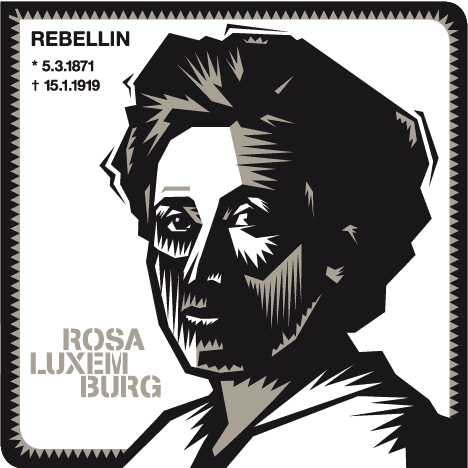








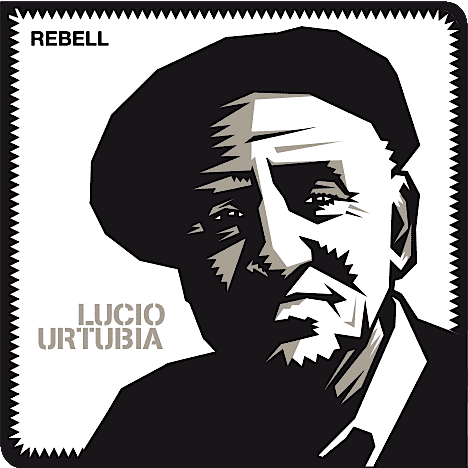

I live in Vienna half of the year and follow Eu politics quite closely. This is the best analysis of the German political situation that I have read so far. Looks like the SPD will continue to become more and more marginal.